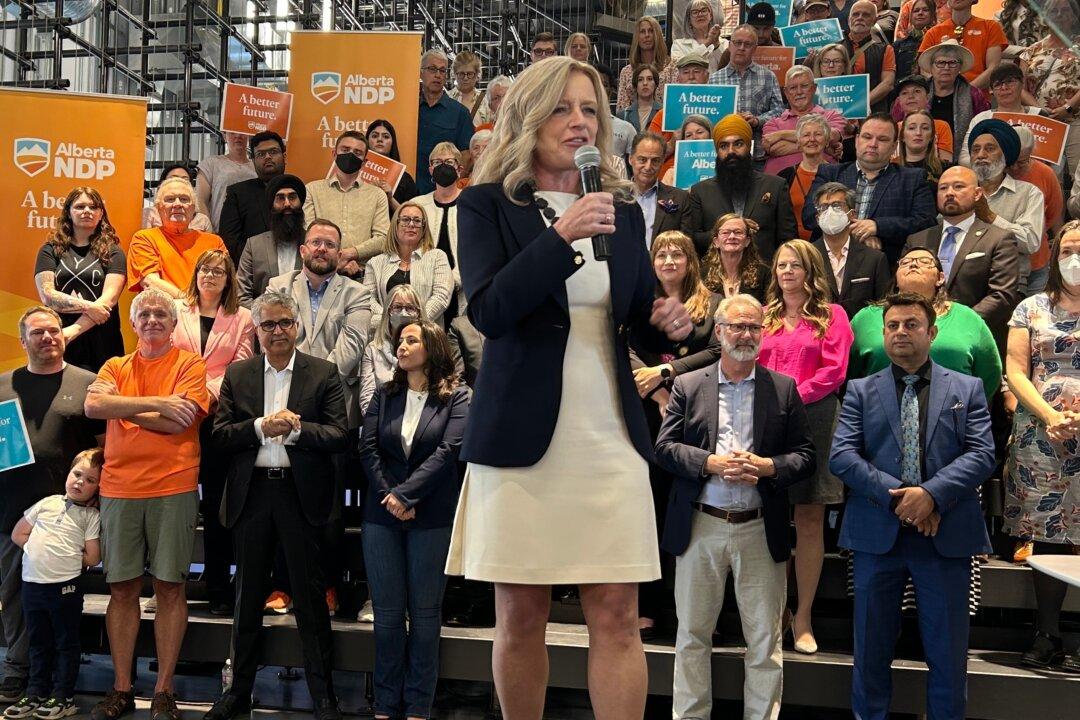Alberta’s New Democrat Party (NDP) has released a costed budget 13 days ahead of the provincial election on May 29, which commits to net-zero carbon tax targets, increases spending across the board, and raises the corporate tax rate in Alberta from 8 percent to 11 percent.
The NDP states the tax increase will increase revenue by $6.2 billion over three years and would be the “lowest in the Country,” according to the budget released May 16.





